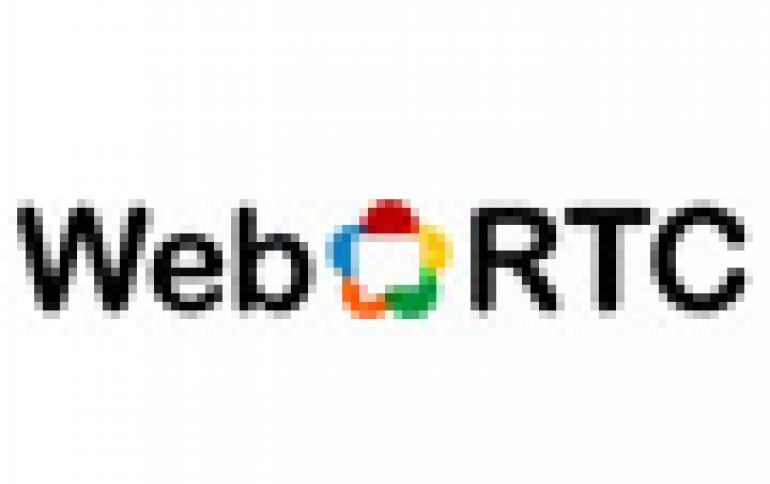
Google Sees Growth Of WebRTC
Google on Friday said that plugin-free video chat in the browser is becoming a reality with the availability of Web with Real Time Communications capabilities, or WebRTC support in Firefox 22.
The new version of Firefox comes with WebRTC enabled in its beta version, which should add a large number of users to the addressable market for WebRTC developers.
WebRTC would allow you to participate in 1080p high-definition video conferences on a mobile device and a browser, without needing to to install any special browser plug-ins or dedicated software.
Google's WebRTC engineering lead Justin Uberti said that WebRTC is going to come to iOS devices soon, although Apple hasn't joined the efforts to implement and standardize WebRTC yet.
During a Friday presentation of WebRTC at Google I/O, Nvidia showcased the capabilities of its Tegra 4 mobile processor, which will be the first to fully support the royalty-free VP8 video compression format at the core of WebRTC.
Nvidia showcased how Tegra 4 supports high-definition 1080p videoconferencing on a system running Android Jelly Bean at 30 frames per second.
Besides Google, Microsoft has been also pushing forward with its own version of WebRTC, as the company did not want the new standard to be tied with Google's VP8 video codec. Microsoft's own proposal, dubbed CU-WebRTC, would instead leave it up to the developer of each app to settle on a codec as well as on other specifics, like the data formats used to communicate. Commenting on Microsoft's stance, Uberti said that Microsoft has been "a great participant in the standards," adding that a version of Internet Explorer that supports this technology will be possibly be available in the future.
WebRTC would allow you to participate in 1080p high-definition video conferences on a mobile device and a browser, without needing to to install any special browser plug-ins or dedicated software.
Google's WebRTC engineering lead Justin Uberti said that WebRTC is going to come to iOS devices soon, although Apple hasn't joined the efforts to implement and standardize WebRTC yet.
During a Friday presentation of WebRTC at Google I/O, Nvidia showcased the capabilities of its Tegra 4 mobile processor, which will be the first to fully support the royalty-free VP8 video compression format at the core of WebRTC.
Nvidia showcased how Tegra 4 supports high-definition 1080p videoconferencing on a system running Android Jelly Bean at 30 frames per second.
Besides Google, Microsoft has been also pushing forward with its own version of WebRTC, as the company did not want the new standard to be tied with Google's VP8 video codec. Microsoft's own proposal, dubbed CU-WebRTC, would instead leave it up to the developer of each app to settle on a codec as well as on other specifics, like the data formats used to communicate. Commenting on Microsoft's stance, Uberti said that Microsoft has been "a great participant in the standards," adding that a version of Internet Explorer that supports this technology will be possibly be available in the future.




















